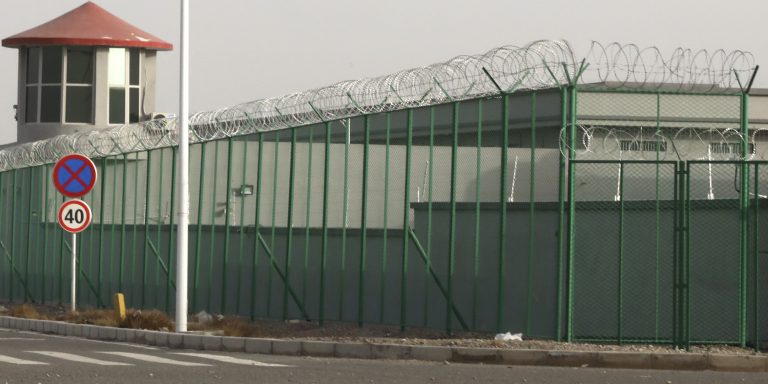INTELBRIEF
October 15, 2020
IntelBrief: China Continues Campaign to Erase Uighur Cultural & Religious Identity

Bottom Line Up Front
- The Chinese Communist Party has engineered the wide-scale abuse of Uighur Muslims and other minorities, such as Kazakhs, in an effort to subdue these groups.
- As part of the CCP’s strategy, thousands of religious sites, including shrines and mosques, have been destroyed or significantly damaged.
- Mass detention of Uighur Muslims and other minority groups have been aided by a reliance on high-tech tools to track, monitor, and surveil Xinjiang residents.
- Countries have mostly remained quiet on the Uighur issue, apparently fearful that criticism could lead to blowback by angering the CCP.
China’s President Xi Jinping recently remarked that levels of happiness among all ethnic groups in Western China was rising and accordingly, Beijing would continue to keep teaching the ‘correct’ outlook. The Chinese Communist Party (CCP) has engineered the wide-scale abuse of Uighur Muslims and other minority populations, like ethnic Kazakhs, with at least one million members of these minority groups in Xinjiang detained in what the Chinese claim are ‘vocational training centers.’ The United Nations has cited credible evidence that Uighurs are subjected to forced labor in these camps, in addition to other forms of mistreatment and abuse, like children being separated from their parents and sent to boarding schools to be inundated with state-run propaganda. Detainees are forced to pledge allegiance to the Chinese flag and sing traditional Chinese songs as part of the indoctrination efforts. In July, as part of the Global Magnitsky Act, the United States imposed sanctions on Chinese officials over alleged human rights abuses against the Uighurs. Washington has also moved to place restrictions on imports on a range of goods emanating from Xinjiang.
The CCP is pursuing an aggressive campaign to erase the cultural and religious identity of Uighur Muslims in China. As part of this strategy, thousands of religious sites, including shrines and mosques, have been destroyed or significantly damaged. Individuals detained in these camps have described the conditions, including being forced to eat pork and drink alcohol, as part of a systematic attempt to get them to renounce their religious beliefs. Many Uighurs have been resettled against their will, compelled to live in cities and urban areas where they were made to work in factory jobs far from their families and social networks. There have also been reports that women have been forcibly sterilized, as Chinese authorities seek to manipulate the demographic balance in Western China. Details of such practices have led lawyers, human rights organizations, and China watchers to call for an international investigation of genocide against minorities in Xinjiang. Chinese authorities have used the COVID-19 pandemic as a pretext to bar reporters and journalists from reaching specific sites in Xinjiang to report on these detention centers. Outside of China’s state-run media, there is limited reporting on what is happening inside Xinjiang province, although satellite imagery has offered disturbing evidence, as well as drone snapshots that showed Uighurs being blindfolded and led to trains.
China continues to build new detention centers, and expand already established ones, and Xi has pushed the narrative that these ‘reeducation camps’ are an essential component of the CCP’s countering violent extremism (CVE) strategy. Beijing has mimicked language from the U.S.-led Global War on Counterterrorism in an effort to deflect criticism of its approach. But for all of the missteps involved in Washington’s counterterrorism efforts, it is critical not to confuse what the United States has done with China’s ongoing campaign of repression. Mass detention of Uighur Muslims has been aided by a reliance on high-tech tools to track, monitor, and surveil Xinjiang residents. There are serious concerns that China could look to export its Orwellian model to other authoritarian regimes, along with the promise of helping rogue states like Russia, Iran, and Egypt crack down on political dissidents under the guise of ‘counterterrorism operations.’ Xi recently commented to a meeting of high-ranking CCP officials that ‘Xinjiang is enjoying a favorable setting of social stability with people living in peace and contentment.’
For the most part, countries have remained quiet on the Uighur issue, including Muslim majority countries like Turkey, Saudi Arabia, and Pakistan, apparently fearful that criticism could lead to blowback by angering the CCP. There have been some exceptions to the general acquiescence. Last week at the UN Germany helped organize a statement with 39 country signatories (22 signed last year)—primarily Western countries—criticizing China for ‘the human rights situation in Xinjiang and the recent developments in Hong Kong.’ This was followed by Cuban-led statement supporting China with 45 signatories (up from last year’s 37 countries)—many of them Muslim majority countries, including Saudi Arabia and UAE. Several countries from the 2019 support list were not added to the 2020 list of supporters. Kazakhstan and Kyrgyzstan both abstained from the multilateral battle for Xinjiang, likely because some nationals are detained in these camps and the countries have suffered civil unrest in recent years protesting China’s policies.